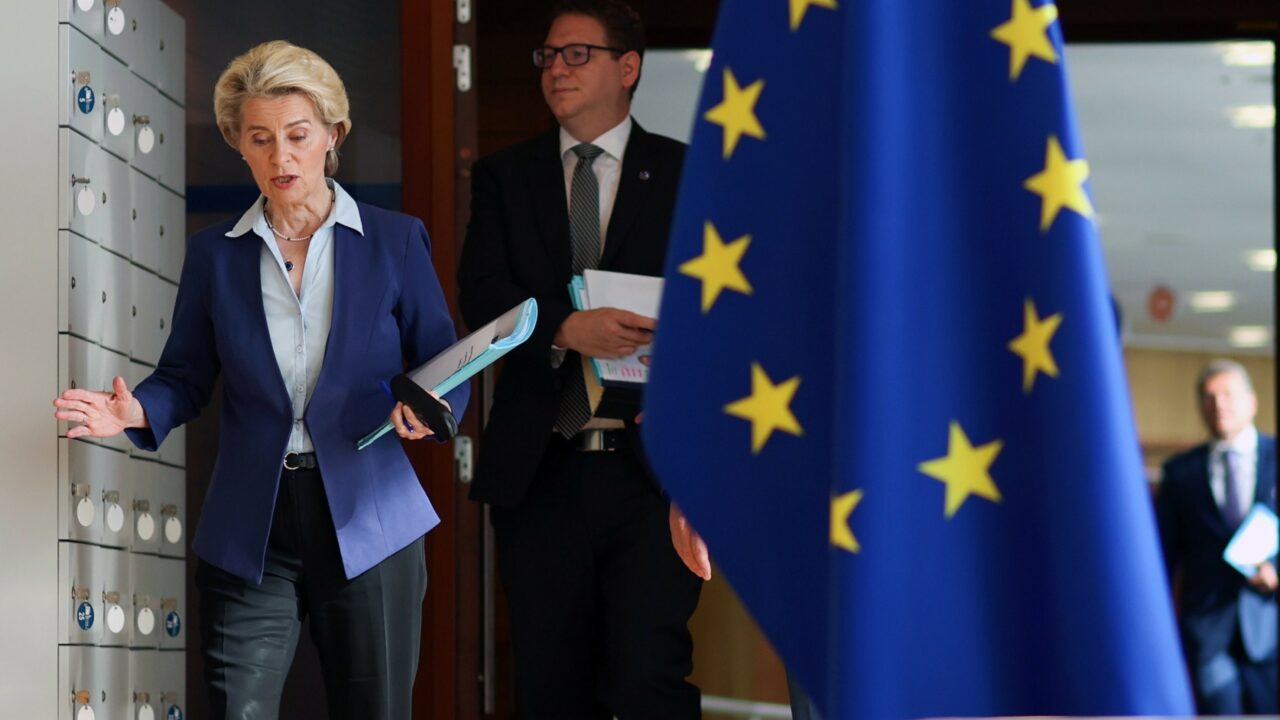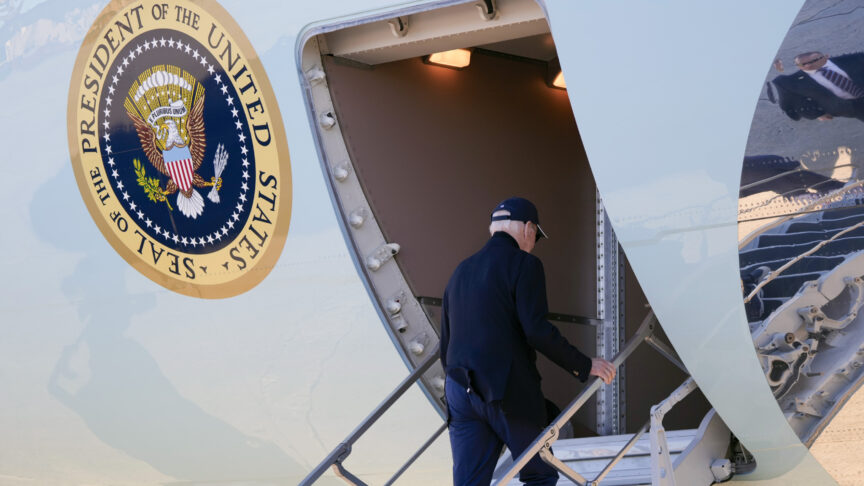Instrument of control: How the EU can protect itself in the global technology competition
The EU’s new economic security strategy contains strong foundations – but the bloc now needs to create a new strategic technology control instrument
The European Commission has unveiled its much-anticipated economic security strategy. For the first time in its history, the European Union is linking security considerations and ‘de-risking’ measures with its economic relations with other powers around the world. The strategy represents the starting point for a profoundly necessary political debate about how Europeans can respond to China’s quest to become a technology superpower – and to the United States’ determination to prevent this from happening.
Looking out over this landscape, the key difficulties facing Europeans include their potential vulnerability to external pressure to make particular decisions on economic relationships, such as what they export beyond the borders of the EU, as well as the risk of European divisions emerging over these questions. Another chief difficulty includes how to strike the right balance between recouping the benefits of open trade with managing the security challenges of uncontrolled technology leakage to systemic rivals such as China. Europeans also risk becoming overly dependent on others for access to particular technologies’ if they do not better steer their trade.
The EU’s powers to defend itself against such pressure are inadequate and it lacks the ability to shape its own such relationships. This was abruptly exposed earlier this year when the Dutch government announced it would prevent the export to China of highly specialised equipment made in the Netherlands and used to make advanced microchips.
At a stroke, this decision illuminated a number of fault-lines that harm the EU’s ability to take decisions in pursuit of its strategic goal of economic and political sovereignty in the world. Firstly, it showed that both member states and the bloc itself lack the tools needed to impede other powers from outstripping Europe in particular technological domains. To prevent China from acquiring the microchip manufacturing equipment and potentially creating additional dependencies for Europeans on advanced chips in the future – as well as potentially usurping the Dutch leading global position in this area – the Netherlands had to rely on an instrument that was originally designed to prevent the proliferation of weapons. The EU’s export control framework has a narrow focus on “dual-use” technologies (which have both civilian and military use potential). These arrangements limit Europeans’ ability to effectively restrict trade in technologies that may not fall under that category but are still crucial for the EU’s economic security, such as semiconductor technologies, clean energy, biotechnology, and robotics. Only with a bit of creativity and by stretching the existing EU dual-use regulation beyond its traditional objectives were the Dutch able to implement their restrictions for economic security reasons.
Secondly, the Dutch decision was a reminder that the European power to act is not unified, but split between member states and the EU. The authority to implement dual-use export controls rests with member states, even though decisions made by national capitals can severely impact on the EU’s common trade and foreign policy. In the Dutch case, the restrictions could lead to a dispute at the WTO, where the European Commission, acting through its trade authority, would be responsible for defending a Dutch national security measure on behalf of the entire EU. The current situation also means member states can be left exposed. Under pressure from the Biden administration to implement controls complementary to US measures, and wary of China’s reaction, the Netherlands was hoping for backing from other member states – but none followed its lead.
Thirdly, the current situation risks exacerbating incoherence and sowing division inside the EU. For example, if Berlin does not follow up on The Hague’s restrictions by also controlling the export of the optics and laser components central to the advanced lithography machines at the heart of the matter, the Dutch decision could be undermined. In this particular case, Chinese companies are still decades behind their European counterparts. But the uncontrolled sale to China of the highly specialised components made by German companies Zeiss and Trumpf could start to erode the European advantage.
A separation between trade and security thinking is no longer sustainable in a time of geo-economic reordering
A separation between trade and security thinking is no longer sustainable in a time of geo-economic reordering. While the EU has some tools to control the trade and development of sensitive technologies – such as investment screening, export controls, and certain safeguards for research cooperation – these add up to less than the sum of their parts. To start to address this, the EU should learn from the experience of its anti-coercion instrument (ACI), which it recently introduced. The ACI gives the bloc the power to impose export controls as a response to economic coercion by other powers. In this way, it has already bridged the trade-security divide in a strategic manner.
The question of who is – and who is not – an indispensable player in the technology industries of tomorrow is an essential security question; the EU should treat it as such. And treating economic relations as essential to security will mean finding new ways to safeguard European technological leadership and ensuring that economic security measures apply across the entire bloc.
A strategic technology control instrument
To breathe life into its economic security strategy, the EU should adopt a strategic technology control instrument. Such a tool would allow the bloc to impose union-wide technology export restrictions in cases where European economic security interests are under threat and cannot be adequately addressed through existing tools. Importantly, the EU needs to be able to act in a first-mover way, not simply in response to the actions of others.
A new EU strategic technology control instrument would enable the bloc to intervene in specific cases of risks to economic security. Concretely, this could include cases in which it is clear that the export to a particular country of a critical technology would contribute to the EU becoming strategically dependent on that country, or would otherwise undercut a critical EU technology advantage. Unlike the ACI, the EU should ensure it can deploy this in a proactive manner.
The EU must take this step now to shore up its position in the global technological landscape. Alongside this, it must also strengthen its technological and innovation competitiveness as an elementary precondition for geo-economic strength. But the power of control remains essential to supporting European agility in the battle for global technological leadership.
The European Council on Foreign Relations does not take collective positions. ECFR publications only represent the views of their individual authors.



